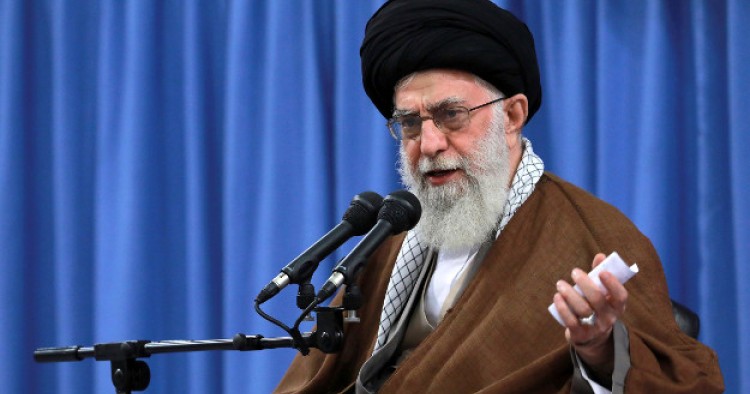In what amounts to an embarrassing dressing down, Iran’s Supreme Leader Ayatollah Ali Khamenei has been handed a scornful public warning from his own uncle. In a public letter that has been published by many Iranian opposition sites, Hossein Mirdamadi, the brother of Khamenei’s mother, cautions that social-political stability in Iran is at risk unless the authorities in Tehran review and modify present policies and practices.
The letter states: “Dear Ali, before it is not too late and your end has not come, I urge you to change your ways in order to correct the wrongs that have befallen the people.” In the letter, Mirdamadi recommends that his nephew stop using repression, violence and political point scoring as his modus operandi. “There is still some time [to change],” Mirdamadi states in the letter but his list of demands is highly unlikely to be met or even acknowledged by Khamenei.
One of Mirdamadi’s specific demands is that Khamenei end the de facto imprisonment of Mir-Hossein Mousavi, Mehdi Karroubi, and Zahra Rahnavard, the leaders of Iran’s Green opposition movement that have been under house arrest since 2011. “You [Khamenei] should release all political prisoners, journalists and those advocating human rights,” Mirdamadi writes, calling the treatment of critics in the Islamic Republic to be both sinful and unsustainable.
The timing of the publication of the letter is prompted by the recent death of Ayatollah Akbar Hashemi Rafsanjani. In his letter, Mirdamadi is highly critical of the way Khamenei-controlled state organs had taunted Rafsanjani in recent years. He calls Khamenei’s willingness to tolerate this kind of treatment of an old friend [Rafsanjani], who was so instrumental in Khamenei’s political rise, to be shameful.
And the uncle of Iran’s supreme leader also blasted Khamenei for his decision to prevent Mohammad Khatami, Iran’s reformist president from 1997 to 2005, from attending the funeral of Rafsanjani. Khatami has since 2011 been blacklisted by the Khamenei-controlled state-run agencies, including the national television and radio, and is also barred from travelling abroad. This is all because he had expressed some reservations about Khamenei’s political agenda.
While many members of Khamenei’s family have over the years come out against his harsh, and often highly repressive, policies, such a letter from an older uncle that is so damning in its tone is a reminder of the breadth of the domestic opposition to Iran’s supreme leader.
The Middle East Institute (MEI) is an independent, non-partisan, non-for-profit, educational organization. It does not engage in advocacy and its scholars’ opinions are their own. MEI welcomes financial donations, but retains sole editorial control over its work and its publications reflect only the authors’ views. For a listing of MEI donors, please click here.













